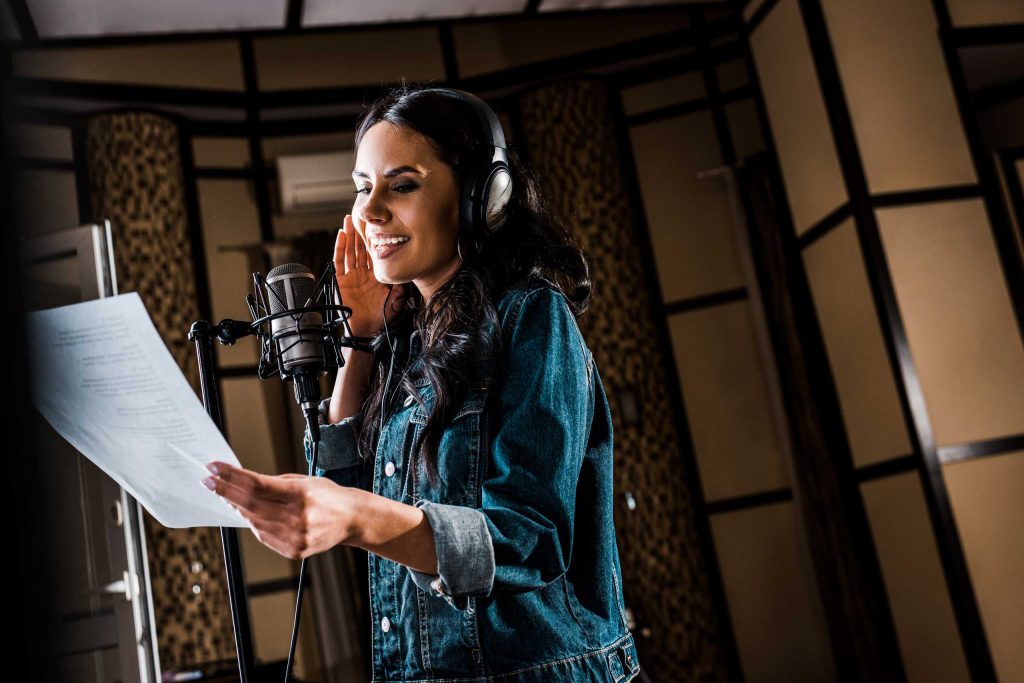You walk into a recording booth. The mic is ready, the script is on the stand, the headphones are on. Suddenly, your voice feels… wrong. Stiff. Unnatural.
This moment is common — even talented actors feel it. The good news? It’s a skill, not a flaw. And it can be trained.
1. Understand the “Studio Freeze”
In daily life, we speak freely, using our body, facial expressions, and eye contact. But in the booth, everything feels stripped away. You’re left with only your voice.
The pressure to “perform” builds quickly. That’s the studio freeze.
The key to breaking it? Learning to trust that your voice can carry the message — and training it to do so.
2. Warm-Up Before You Ever Hit Record
You wouldn’t run a marathon without stretching. So don’t jump into voice-over cold. Always warm up:
- Humming to open up resonance
- Lip trills to loosen facial muscles
- Tongue twisters for clarity
- Short breathing exercises for grounding
Even 5 minutes of warm-up will make you sound more natural and controlled.
3. Forget the Mic — Speak to One Person
Imagine you’re not speaking to a mic, but to a single person who needs to hear what you’re saying. Make it real: your friend, your sibling, a character in your mind.
This trick helps strip away the stiffness and brings emotional clarity. You’re no longer “performing” — you’re communicating.
4. Don’t Rush the Lines
Speed is a major beginner mistake. When nervous, we tend to talk faster than we should — flattening the emotion.
Practice reading slowly. Add space between phrases. Feel the line before you deliver it.
In dubbing especially, timing matters, but natural pacing matters more. You can always tighten things later — but you can’t fake emotion in a rushed take.
5. Record. Listen. Repeat. A Lot.
Recording yourself and listening back is awkward at first. But it’s essential. You’ll start noticing:
- Overused intonations
- Words you swallow
- Where emotion sounds forced
This isn’t about judgment. It’s about awareness. That’s how you grow.
6. Celebrate the Small Wins
Sounded natural in just one line? Nailed that tricky emotion? That counts. Voice-over is a long game. Confidence builds with every session.
Track your progress. Re-record the same script a month later. You’ll hear the difference — and that’s your motivation to keep going.
Conclusion
Studio confidence isn’t about sounding perfect. It’s about sounding like yourself — focused, expressive, and human.
With practice, the mic will stop feeling like a spotlight… and start feeling like a stage.

